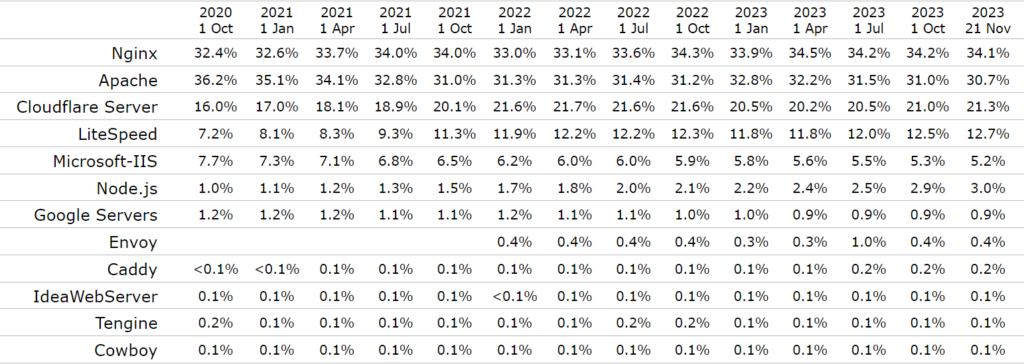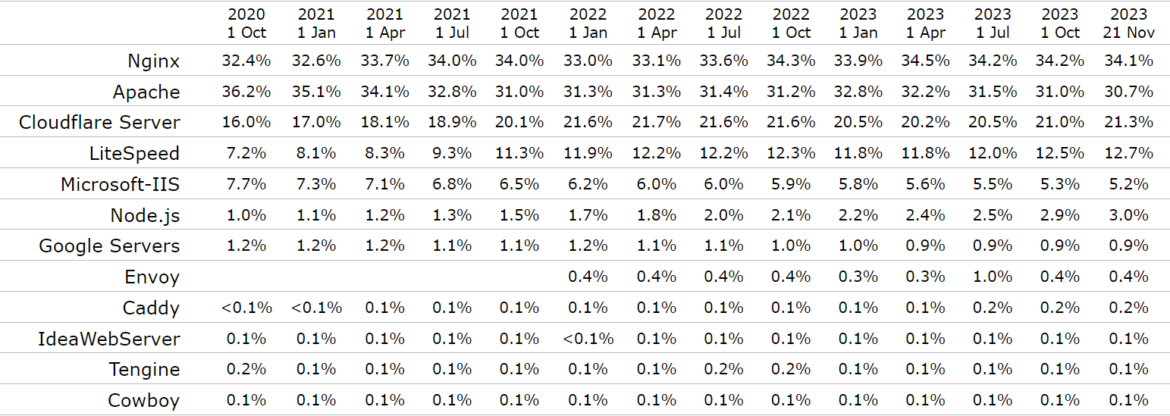
Selecting the appropriate web server can be a daunting task with the abundance of choices and complex jargon. Among the contenders, NGINX and Apache stand out, but it’s crucial to determine which one best suits your requirements—a challenge many developers encounter.
To clarify, we must scrutinize the attributes, performance, and compatibility of NGINX and Apache. This post will aid in distinguishing the capabilities of each server, thereby facilitating your decision-making process.
Embark on a comprehensive exploration of NGINX and Apache as this post delves into their specifications, empowering you to select the server that aligns with your project needs. By the conclusion of this article, you’ll have the insights necessary to choose confidently.
In-depth Look at NGINX and Apache
An expanded evaluation of NGINX and Apache is in order.
NGINX
Conceived by Igor Sysoev, NGINX (pronounced “engine-x”) was initially released in 2004 to tackle the C10k conundrum, which involves efficiently managing 10,000 simultaneous connections on a single server.
It has since grown into a formidable web server renowned for its impressive performance, reliability, and modest consumption of resources.
Apache
Apache, formally recognized as the Apache HTTP Server and brought to life by Robert McCool, emerged as a prominent alternative to Netscape’s web server. Since its 1995 debut by the Apache Group and subsequent stewardship by the Apache Software Foundation, Apache has garnered acclaim for its comprehensive features, modular customizations, and considerable community backing, leading the online server space since April 1996.
Comparative Market Share of NGINX and Apache
W3Techs data reveals a noticeable change in market share between NGINX and Apache from October 2020 to November 2023.
– Web Servers Market Share / W3Techs
While Apache held a lead with a 36.2% market share in October 2020 over NGINX’s 32.4%, the latter experienced a gradual uplift, securing a 34.5% peak in April 2023 and then a slight decrease to 34.1% by November 2023.
This shift indicates a growing preference for NGINX’s efficiency and performance, considering it has managed to overtake Apache’s share from behind, a testament to users gravitating towards NGINX’s capabilities.


